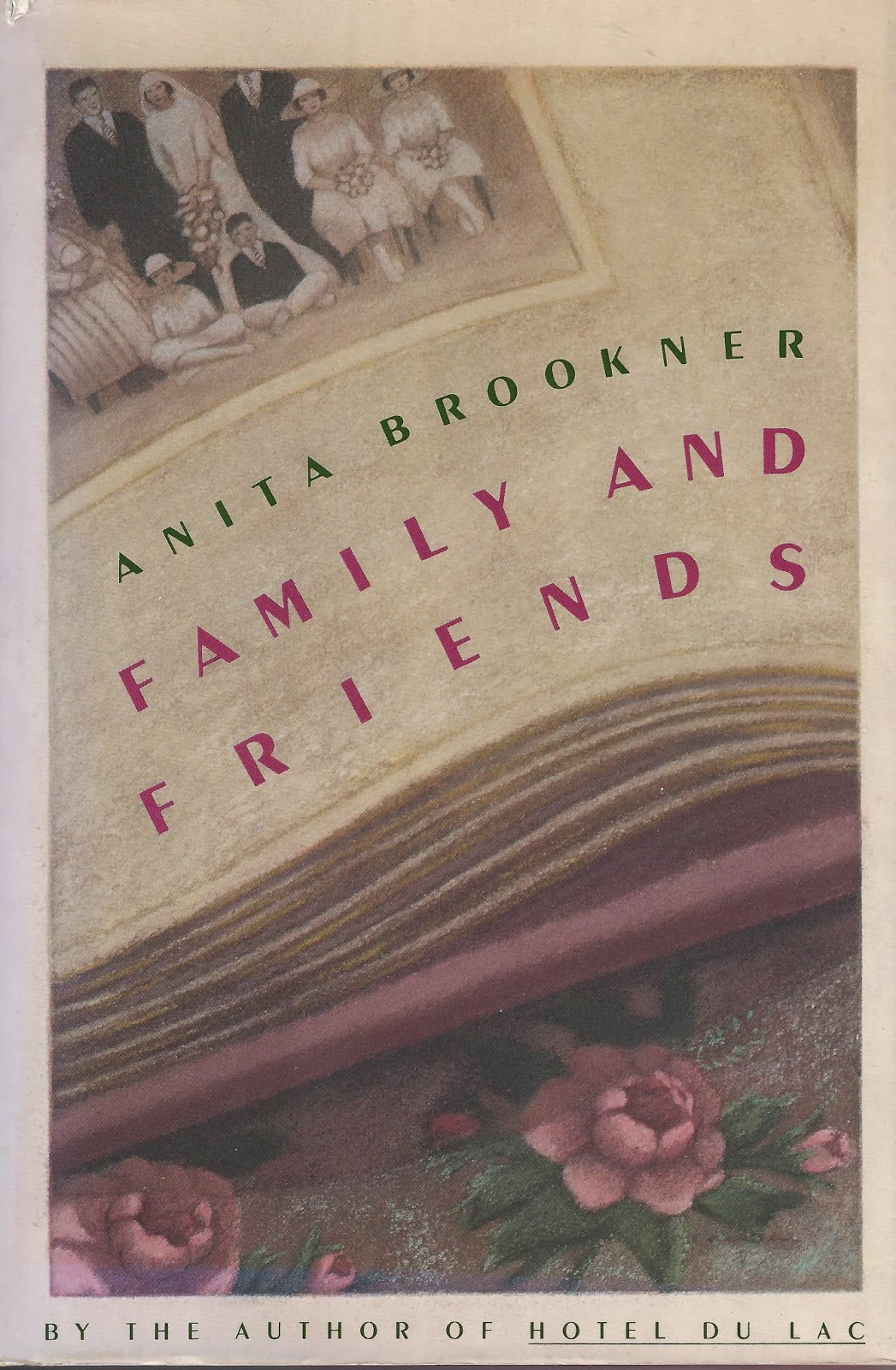Friday, January 17, 2014
Review: Family and Friends
This review originally posted on My Porch.
One of the best reading ideas I ever had was to re-read all of Anita Brookner's novels in chronological order. My challenge in writing reviews for these re-reads is whether or not I dare to try and put each of them into context with all the others. Given that Brookner has written 24 novels (so far, fingers crossed for 25...) to try and do so would be foolish for someone of my limited critical abilities. Twenty-four books is a lot to try and keep straight and seeing as I started reading them about 15 years ago, I certainly don't remember each of them as if I read them yesterday. Of course I often couldn't even tell you what I actually did read yesterday so you start to see my challenge.
Published in 1985, Family and Friends was Brookner's fifth novel and her first to focus on an entire family rather than her more usual focus on a single individual. To be sure, matriarch and widow Sofka Dorn is the center of the book and the actions of each of her four children are presented in relation to Sofka's dominance and needs, but unlike so many Brookner novels, these kids actually go out and live their lives. That is, at least two of them do. It is debatable whether or not the other two do. Oldest son Frederick isn't all that much interested in running the family factory and begins to place much of the burden on his 16-year old brother Alfred. Oldest daughter Mimi, is more beautiful than her younger sister Betty, but being the much more serious of the two, she seems destined to be the sad Brookner heroine we fans have grown to expect (and love). Meanwhile Betty takes life by the horns and refuses to let go until she has things just as she wants them.
As with most Brookner novel's Family and Friends is set in London, but unlike most of her works, the action takes place in years leading up to World War II. Here and there Brookner gives just the slightest sense of the political winds on the Continent. There may be refugees working in her kitchen and neighbors from the old country needing help, but they are really just background, or they show up to help define the main characters. In fact this is one of the brilliant things about Brookner in general. Her books are such fantastic studies of emotions and personalities that the rest of the world barely exists. She doesn't waste a lot of time creating a world outside her characters' heads but she does that so well one doesn't miss it. It's a kind of writing that requires a fair amount of cultural fluency. To be honest, the first time I read this book I missed much of that background.
Each of us to some degree is influenced by our family. But some families constitute a more closed ecosystem than others. Not surprisingly, Sofka has created--but is ultimately unable to maintain--a world that seems to kits her children out to be nothing else than their mother's children. The boys were tutored at home and the girls given a governess. "They wound up with numerous accomplishments but no real education."
"To Frederick [Sofka] is an oasis of sanity in a world peopled by increasingly difficult women." Even today, I bet each of us can point to at least one man that fits that bill--no woman can serve him as well as mama did. "To Alfred Sofka is quite simply a deity ... He knows no one as beautiful as Sofka ... she has seen to it that his life never will escape her ... " Frederick ends up marrying Evie, someone quite unexpected and perhaps exactly the kind of difficult woman his mother was not. The two of them move to Italy to run a hotel owned by Evie's family. Alfred, on the other hand, never leaves his mother but also seems subconsciously to be punishing her for imprisoning him. He has mistresses under his mother's nose, takes up a weekend house in the country she doesn't entirely like with a cook she doesn't approve of, and even moves them into a flat a very masculine flat with rooms the color of cigars.
But what of the girls? Mimi, thwarted in love by the younger, less pretty Betty decides to lead a nun-like existence until she marries the much, much older major domo of the family business. (I read this book while in the early pages of Middlemarch and I couldn't help but see some slight similarities between Mimi and Dodo.) Betty, meanwhile decides to stay in Paris rather than continue her journey to Switzerland for finishing school. She dances on the stage for awhile before marrying a movie producer and moving to California.
Ultimately Mimi and Alfred stay by Sofka's side until the end while Frederick and Betty don't even bother come back to visit. Not ever. Not even when she is dying.
Although Family and Friends has far more action than a typical Brookner novel, one doesn't read Brookner for action. One reads her for her ability to develop a character and describe them with great nuance and economy. Instead of being painted by a famous painter, I would love to be described by Anita Brookner. I'm sure I wouldn't like it, but I would love the way she said it.
For those who haven't read Brookner before, I think this would be a good one to ease into her style and the sadness that pervades much of her work. In fact there were moments of Family and Friends that actually seemed joyful.
Subscribe to:
Comments (Atom)
